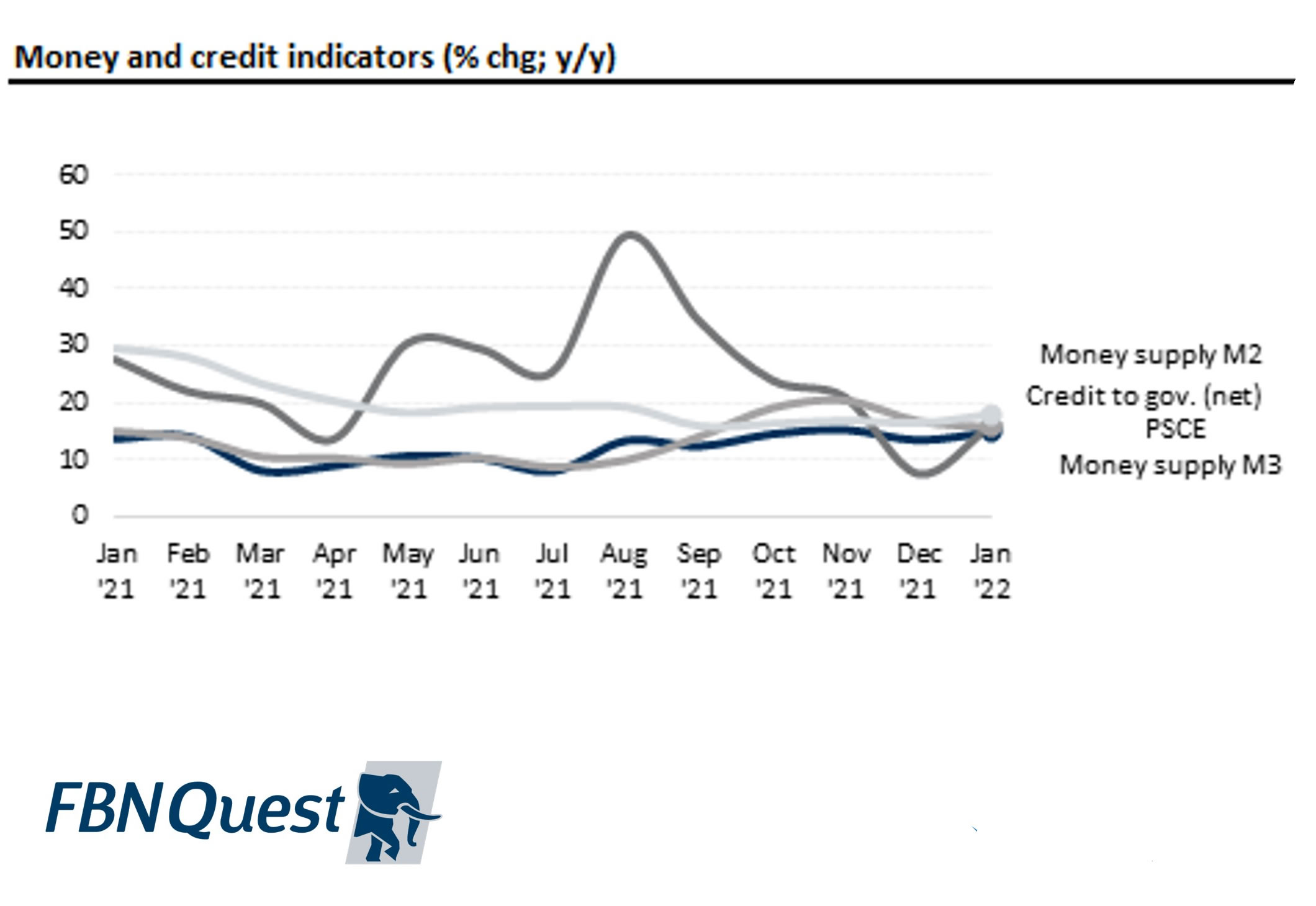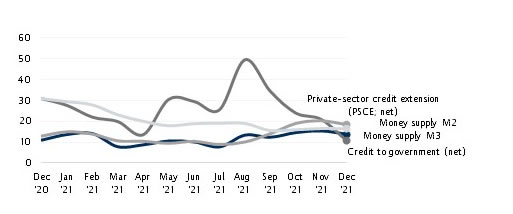According to data by Nigeria’s central bank (CBN), private sector credit extension (PSCE) increased by 18% y/y to NGN40.8trn as at end-October 2022, down from a growth rate of 19% y/y in September. The data covers lending by the entire banking system and not only the deposit money banks (DMBs), which account for almost 69% of the total figure. The data reflect lending by the CBN and state-owned development banks, such as the Bank of industry, and smaller credit extensions by other banks, such as micro-finance banks and non-interest banks. Although credit extension to the private sector has grown over recent months, Nigeria’s credit penetration still has a long way to go, considering the low level of formal and informal financial inclusion in Nigeria and the CBN’s target of 95% financial inclusion by 2024.
According to a narrower measure of PSCE obtained from the CBN’s Quarterly Statistical Bulletin (QSB) for Q1 ’22, total PSCE reached NGN28.2trn as at end-September 2022, implying an increase of 23.7% y/y. This series covers only lending by deposit money banks (DMBs).
This leaves a difference of around NGN17trn (between total PSCE and lending by DMBS), a little which can be attributed to the time lag.
Notably, credit extensions to the private sector and other monetary aggregates have continued to expand in recent months despite the CBN’s efforts to tighten monetary policy to rein in inflation.
As shown in our chart below, credit growth of the government continues to exceed all other monetary aggregates that we track.
The latest data for October shows that credit extension to the government expanded by 75% y/y, following a 76% growth in September.
According to reports, the CBN’s loans to the federal government via ways and means amounted to NGN23.8trn as at end-October 2022.
As a result, we can conclude that the government’s access to credit is crowding out lending to the private sector.
The high rate of credit extension to the government is likely to continue, due to the increasing government’s fiscal deficits. The 2023 (approved budget) implies a fiscal deficit of c.NGN11.0trn, which is higher than the revised NGN8.2trn in the 2022 budget.
 Lagos, NG • GMT +1
Lagos, NG • GMT +1











 189 views
189 views












 Sponsored Ad
Sponsored Ad
 Advertise with Us
Advertise with Us









